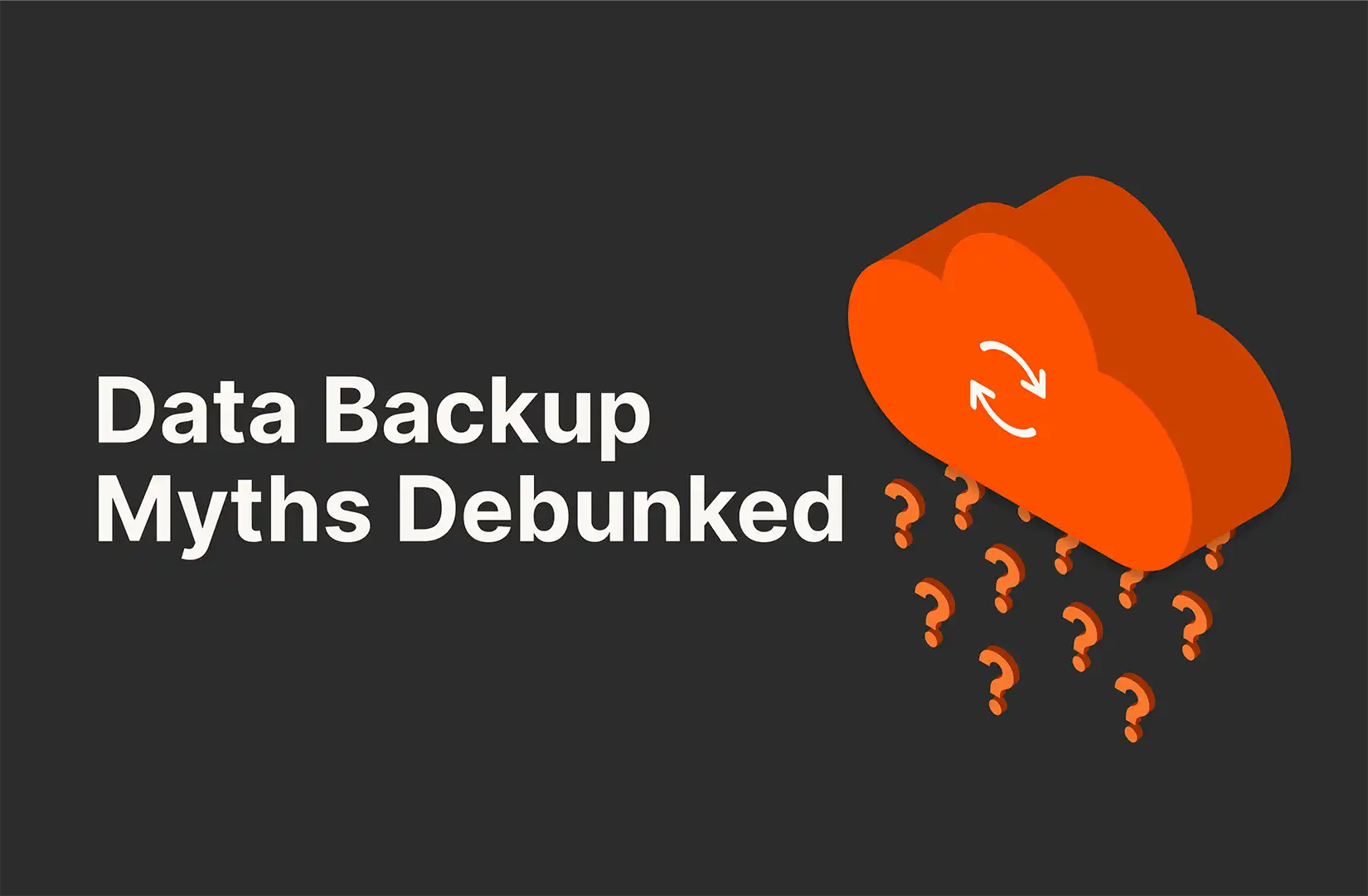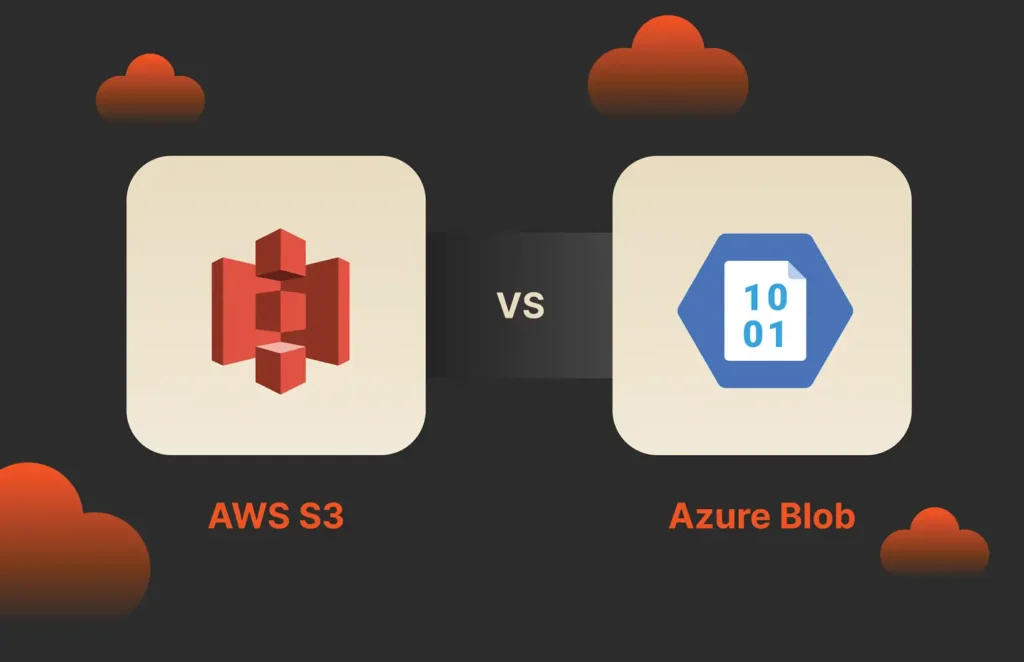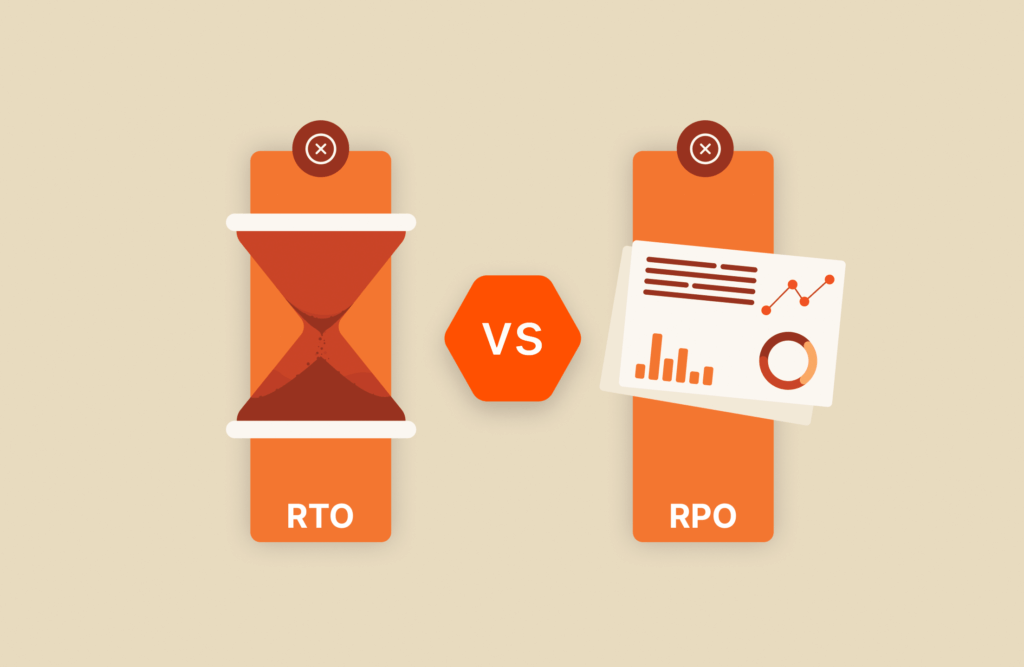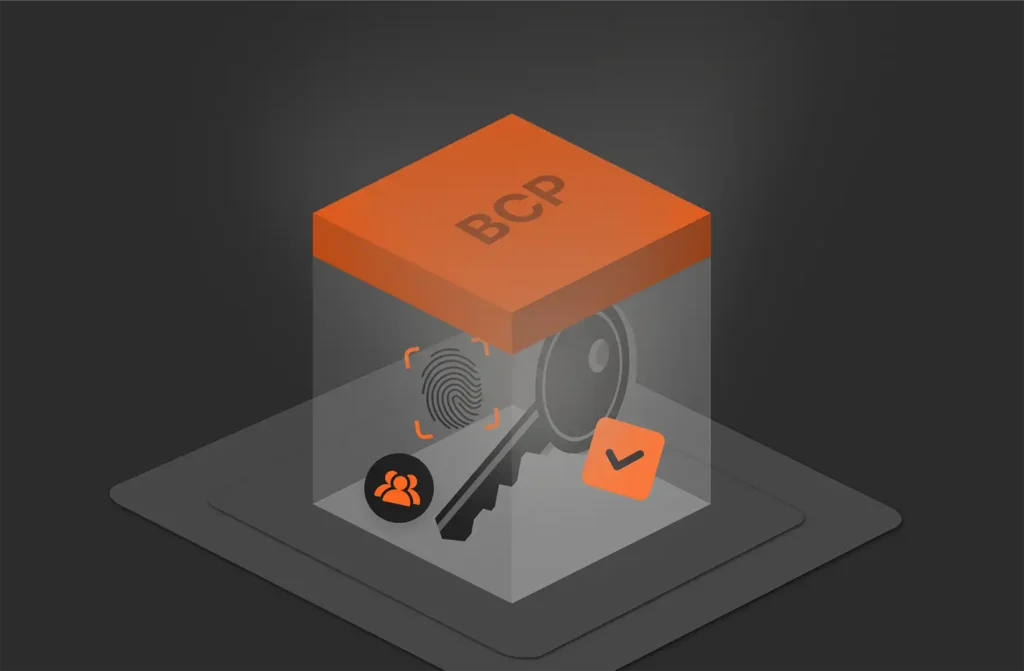Summary
A robust data backup strategy is critical for helping organizations prevent financial loss, reputational damage, and regulatory fines due to data loss.
Data is the lifeblood of business processes. It’s used to make informed decisions, improve customer service, and drive innovation. Because data loss is interwoven with critical business decisions, it can have a devastating impact on businesses of all sizes. It can lead to financial losses, reputational damage, and even business closure. Therefore, it is essential to have a robust data backup strategy in place.
Despite its importance, many organizations still struggle to implement an effective data backup strategy. One of the biggest reasons is misconceptions and myths about data backup.
Some businesses believe backups are too costly, while others assume cloud storage is unsafe. These misconceptions can lead to inadequate data protection, leaving businesses vulnerable to data loss, cyberattacks, and operational disruptions. Let’s discuss some of the myths surrounding data backup.
Myth 1: Data Backup Is Too Expensive
One of the most common myths about data backup is that implementing a robust backup strategy requires a massive financial investment. However, modern backup solutions have become more affordable and scalable, catering to businesses of all sizes. Cloud-based backup services, for instance, provide flexible pricing models, allowing businesses to pay only for the storage they use.
The cost of data loss far outweighs the cost of investing in a reliable backup system. Downtime alone can cost businesses thousands to millions of dollars per hour, depending on the industry. In 2024, the average cost of a data breach in the U.S. was $9.36 million. Legal penalties for non-compliance with data protection laws like GDPR and HIPAA can lead to severe fines, and reputational damage often results in lost customers and diminished trust.
A well-structured backup strategy not only helps prevent financial loss but also ensures business continuity and operational stability. Unlike the myth, many cloud-based backup services provide flexible pricing models, allowing businesses to pay only for the storage they use.
Myth 2: Only Large Businesses Need Data Backup
It’s a common misconception that only large corporations need to worry about data backup. However, small and medium-sized businesses (SMBs) are just as susceptible—if not more—to cyber threats, accidental deletions, and hardware failures.
In fact, 60% of small businesses that suffer data loss go out of business within six months. Unlike large enterprises with dedicated IT teams, SMBs often lack the resources to recover from data loss efficiently. Data loss not only results in the immediate cost of restoring or recreating lost files but also leads to operational downtime, lost customer trust, and regulatory fines.
Without a reliable and stable business, customer churn is unavoidable. Implementing a simple, automated backup strategy can prevent irreversible data loss, ensure business continuity, and shield SMBs from potentially crippling financial consequences.
Myth 3: Cloud Backup Is Not Secure
Many businesses worry that storing their data in the cloud makes it more vulnerable to cyberattacks. However, reputable cloud backup providers implement multiple layers of security to protect sensitive information.
Some of the key security features of cloud backup solutions include:
- End-to-end encryption (both in transit and at rest)
- Multi-factor authentication to prevent unauthorized access
- Geo-redundancy, ensuring that backups are stored in multiple locations for disaster resilience
- 24×7 monitoring and AI-driven threat detection
When compared to traditional backup methods, cloud storage often outperforms on-premises backups, which are more susceptible to physical damage, theft, and local disasters.
Myth 4: Data Backup Is a One-time Task
One big mistake organizations make is assuming that setting up a backup system once is enough. Data environments change constantly, and backup strategies must be ongoing and evolving to keep pace.
Regular and ongoing backups are crucial because:
- Data grows and changes daily: If backups are outdated, businesses risk losing valuable information.
- Cyber threats evolve: Different cyberattacks can target outdated backups, making frequent updates necessary.
- Testing ensures recoverability: A backup is only useful if it can be successfully restored.
The frequency of your backups will depend on the type of data you are backing up and how often it changes. For example, you may need to back up financial data daily, but you may only need to back up photos and videos weekly. You can also automate backups with scheduled updates to ensure data integrity and minimize the risk of data loss due to human error.
Myth 5: Data Recovery Is Always Guaranteed
Many businesses falsely assume that having a backup means data can always be fully restored. However, successful recovery depends on many factors, such as backup frequency, storage reliability, and testing practices.
Some common pitfalls that can lead to failed recovery include:
- Corrupt or incomplete backups due to improper configurations. If a backup is not properly configured, critical data may be missing, outdated, or stored in a format that prevents proper restoration. Regular audits and verification processes are essential to ensure that backups are complete and functional.
- Storage failures in backup devices or cloud storage mismanagement. Physical storage devices can fail due to hardware degradation, accidental damage, or environmental factors. Cloud storage, while generally reliable, can also be compromised if not properly managed, leading to access issues, data corruption, or unintentional deletions.
- Lack of redundancy, where a single failure point compromises all stored data. Relying on only one backup location or storage medium increases the risk of permanent data loss. A robust backup strategy should include multiple copies of data stored across different environments, such as on-premises servers, cloud storage, and external backup solutions.
Some measures you can put in place to ensure a reliable recovery are:
- Implement the 3-2-1 backup rule, which means maintaining three copies of data, stored on two different types of media, with one copy kept offsite. This ensures redundancy and protection against localized failures.
- Regularly test backups by performing routine recovery drills to verify that data can be restored correctly and within an acceptable timeframe. Organizations should document these tests to refine their recovery process.
- Use immutable storage to safeguard backups against ransomware attacks. Immutable backups prevent unauthorized modifications, ensuring that data remains intact even if attackers gain access to the system.
- Leverage automated backup monitoring tools to detect potential failures, misconfigurations, or inconsistencies in backup data, allowing for prompt resolution before a disaster occurs.
Conclusion
Data backup is a critical component of any data management strategy. A robust backup strategy is essential to protect data from loss, corruption, or damage.
Pure Storage provides cutting-edge storage solutions that pair well with backup and recovery vendors like Veeam, Commvault, and Rubrik and help businesses safeguard their data against cyber threats and system failures. With technologies like FlashArray™, FlashBlade®, and Pure Cloud Block Store™, Pure Storage delivers:
- High-performance, scalable storage for backup and disaster recovery.
- Seamless integration with leading backup software providers.
- Advanced ransomware protection with SafeMode™ Snapshots.
- Disaster recovery as a service through Pure Protect //DRaaS.
Learn more about Pure Storage data backup and recovery and how it can help you build a resilient and future-proof backup strategy.

Cyber Resilience, Pure and Simple
Fortify your data and guarantee uninterrupted business operations.
Reliable Data Backup
Build a resilient and future-proof backup strategy with Pure Storage.






